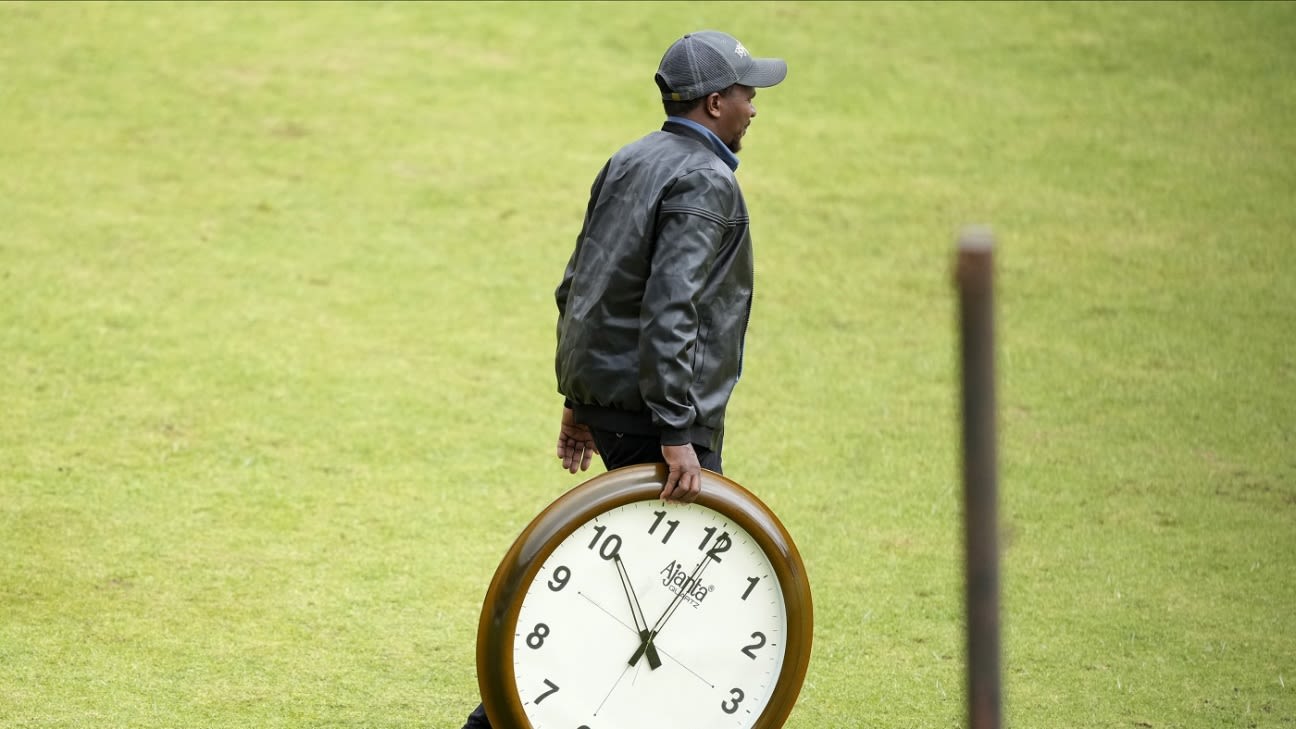“The results of the stop-clock trial were presented to the Chief Executives’ Committee (CEC), which demonstrated that around 20 minutes per ODI match had been saved in time,” an ICC release said. “Given the clear improvement to the flow of the game, the CEC approved that the stop clock be introduced as a mandatory playing condition in all men’s ODI and T20I matches between Full Members from 1 June, 2024, including [at] the ICC Men’s T20 World Cup 2024.”
The release on the outcomes of the meetings also said that the upcoming Men’s T20 World Cup in June will have reserve days for the semi-finals and final, and that a minimum of 10 overs of the chase need to be bowled in those knockout games to constitute a completed match – a departure from the usual five-overs-constituting-a-completed-T20 regulation. The group games at the World Cup, which will be played in the USA and the West Indies, will continue to need only five overs of the chase bowled to constitute a completed game.
The 2026 Men’s T20 World Cup, like the upcoming edition, will feature 20 teams, with 12 automatically qualifying: the two hosts – India and Sri Lanka – get automatic berths, as well as the other teams that make the Super Eights at the 2024 edition. Then, two to four teams (it will be fewer than four teams only if India or Sri Lanka finish outside the top eight in 2024) are decided by who are the next highest-ranked teams in the ICC’s T20I rankings on June 30, 2024. The remaining eight spots for 2026 will be decided through the usual regional qualifiers pathway.
